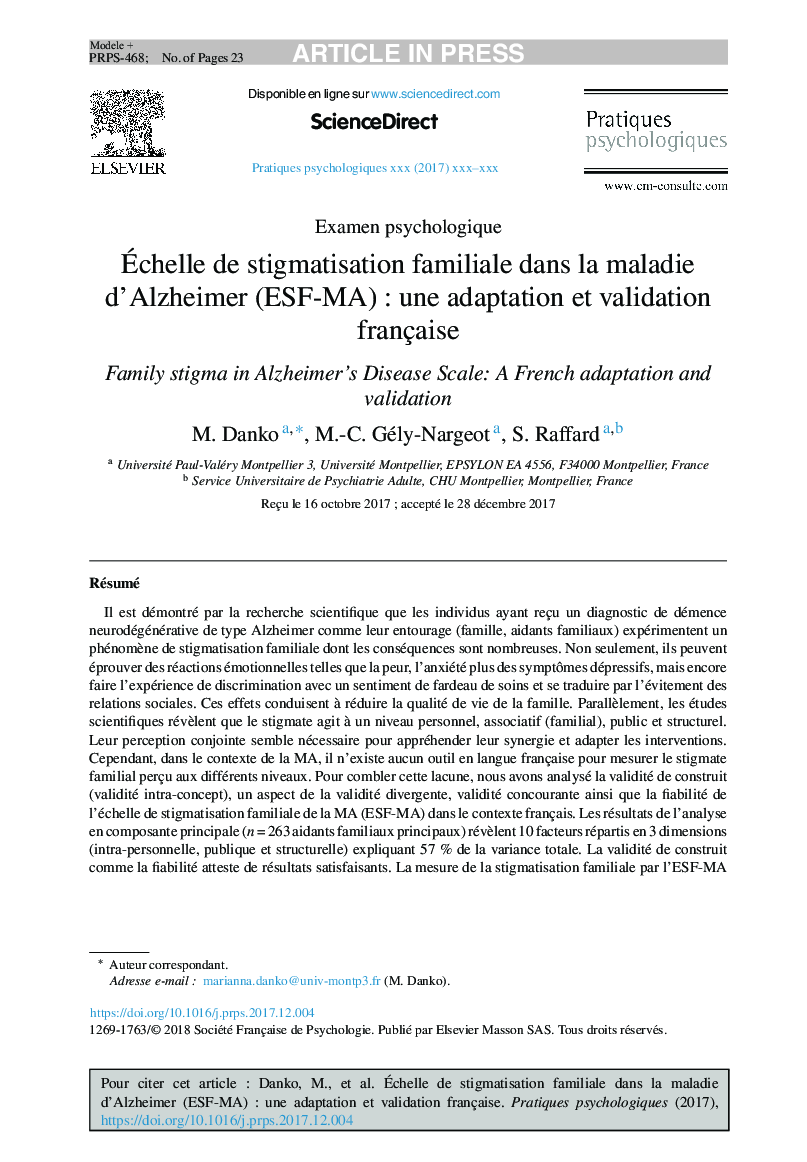| Article ID | Journal | Published Year | Pages | File Type |
|---|---|---|---|---|
| 8954501 | Pratiques Psychologiques | 2018 | 23 Pages |
Abstract
According to scientific research, individuals diagnosed with neurodegenerative dementia of the Alzheimer type and their surroundings (family, family caregiver), experience a phenomenon of family stigmatization of which there are many consequences. Not only can they experience emotional reactions such as fear, anxiety, more depressive symptoms, but they can also face discrimination with a sense of care giving burden and be the result of social relationships avoidance. These effects lead to reduce family life quality. At the same time, scientific studies reveal that stigma acts on a personal, associative (family), public and on a structural level. Their joint perception seems necessary to apprehend their synergy and to adapt interventions. However, in the AD context, no tool exists in the French language to measure perceived family stigma on different levels. To fill this gap, we analyzed the construct validity (intra-concept validity), an aspect of the divergent validity, concurrent validity as well as the reliability of the AD family stigma scale (ESF-MA) in the French context. The results of the principal component analysis (n = 263 family caregivers) reveal 10 factors divided into 3 dimensions (intra-personal, public and structural) that explain 57 % of the total variance. The validity of the construct like the reliability represents satisfying results. The measurement of the family stigma by the ESF-MA presents an opportunity to complete clinical observations among family caregivers of people diagnosed with AD.
Related Topics
Social Sciences and Humanities
Psychology
Applied Psychology
Authors
M. Danko, M.-C. Gély-Nargeot, S. Raffard,
